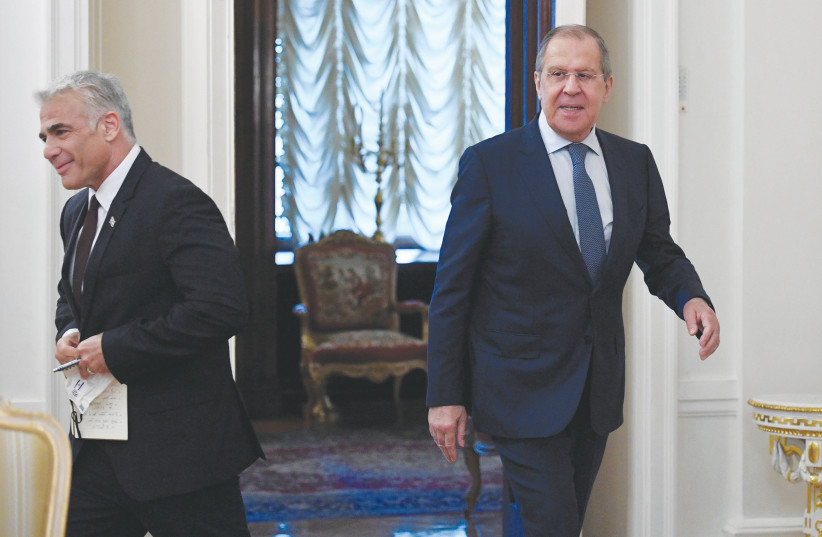Russian President Vladimir Putin on Friday signed an an updated foreign policy doctrine.
"The Foreign Ministry, in coordination with the presidential administration, the Security Council staff, the government, many ministries and departments, has carried out large-scale and painstaking work to update it and bring it into line with modern geopolitical realities," he said about the doctrine according to Interfax.
Russian Foreign Minister Sergei Lavrov said that the country faced "existential threats" to its security and development from "unfriendly states" as he presented President Vladimir Putin with the document.
The 42-page document sets out changes to Russia's view of the world - in particular, its increasingly confrontational relationship with the West - that have already taken shape and have often been articulated by Putin in recent years.
Lavrov said the start of what Moscow calls its "special military operation" in Ukraine had ushered in "revolutionary changes" in world affairs that now needed to be reflected in Russia's main foreign policy document.
He told a televised meeting of Russia's Security Council that the new concept outlined how Russia could take "symmetric and asymmetric measures in response to unfriendly actions against Russia."
Russia's Western foes were trying to "weaken Russia in every possible way," Lavrov said.

The content of the document
The document, a de facto handbook for Russian diplomats, names the United States as the main threat to international stability and driver of an "anti-Russian line". But it also says Moscow seeks "peaceful coexistence" and a "balance of interests" with Washington.
It calls for Russia to maintain "strategic stability" with the United States - a reference to the nuclear capabilities of the two countries - despite having suspended the New START treaty, the last remaining nuclear arms control pact between the two sides, in February.
